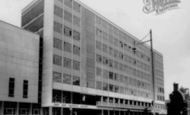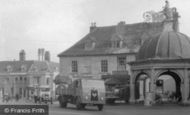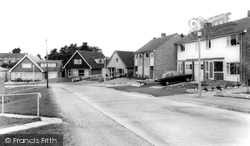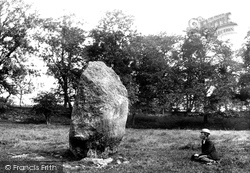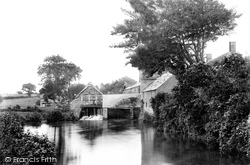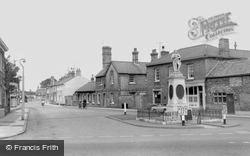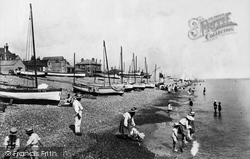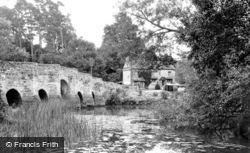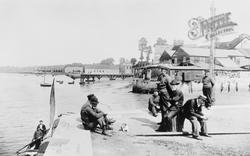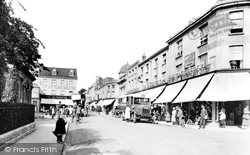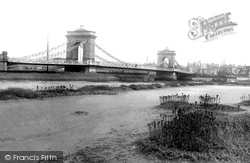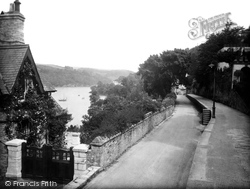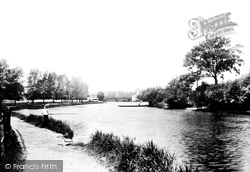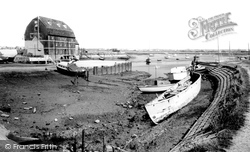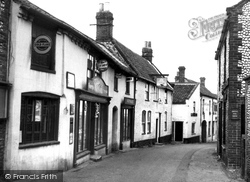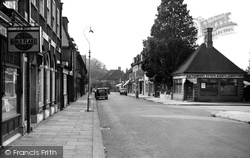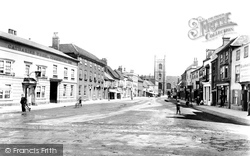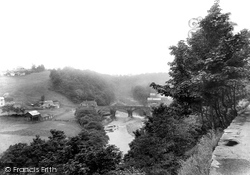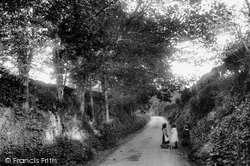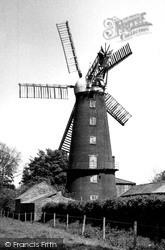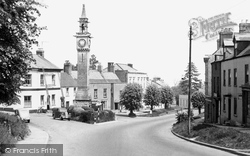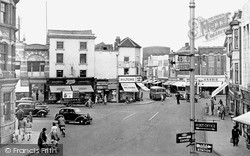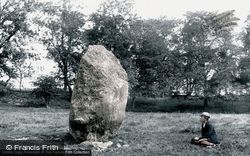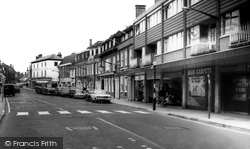Places
3 places found.
Those places high-lighted have photos. All locations may have maps, books and memories.
Photos
63 photos found. Showing results 581 to 63.
Maps
12 maps found.
Books
1 books found. Showing results 697 to 1.
Memories
7,562 memories found. Showing results 291 to 300.
Little Oakley The Dolly Houses
Just before I left school in July 1948 I with my mother, cousin Isabel, and aunt Hannah travelled down from Gateshead to visit my aunt Susie and uncle Don who lived in the dolly houses in Little Oakley. I recall there ...Read more
A memory of Harwich in 1948 by
I Attended Here In The Late 50s And Early 60s
I remember St Marys when Mr Naylor if im right was the headmaster when i left to go to Longsands in 1962. At easter and Christmas we use to go to St Marys church opposite for services. There was some ...Read more
A memory of St Neots in 1961 by
Childhood Memories
I was born at home in a house within a housing estate called East Park, I think it was No 39, in Old Harlow and then we moved to No 38 Chippingfield, Old Harlow. My elder brother went to Mark Hall School and my other brother and I ...Read more
A memory of Harlow in 1964
1970's And 1980's East Ham Memories
I left East Ham behind around 1983 for Essex, my mother and father told me we were moving because East Ham was changing, becoming dirty and run down, I was devastated. Recently I have met up with old class mates ...Read more
A memory of East Ham in 1983
Fishcross
I left Fishcross in September 1962. I was part of the MacKay clan way back when everyone knew everyone. I had a friend across from where I lived at 2 Alloa Road, her name was Catherine Logan. My brother Ken (Kye) had a pal Michael ...Read more
A memory of Fishcross in 1962 by
Early Childhood
After retiring from the RAF, my father was with Air Ministry Constabulary and we moved to Stanwix in 1938 when my father was posted to 4 MU. We lived in Knowe Park Avenue and I attended Stanwix School. My sister attended the ...Read more
A memory of Stanwix in 1930 by
Living In Chilton
My family moved to Chilton Foliat and took over the "Old Post Office". I was still young then and went to the old school run by Mr & Mrs Hassall who lived next door to the school. Two classrooms and very fond memories. ...Read more
A memory of Chilton Foliat in 1964 by
Bungay And Woodton
Early years - Nurse Britton was a friend as she was to most I believe. I was too young to be exact with memories but my gran lived opposite Whitemans shop which got hit by a bomb in the Second World War. I remember the garage ...Read more
A memory of Bungay in 1951 by
Boyhood Memories
My memories of Sledmere are those of a small boy growing up in Sledmere between 1947 to 1958 when my parents decided to move from Sledmere. I have exceptionally fond memories of those days. I cannot remember a bad day or a sad day ...Read more
A memory of Sledmere by
Days Gone By
My family arrived in Seaforth late in 1939 after we were shipped back from Gibraltar where my father was stationed with the Kings Regiment. Early memories of our house in Holly Grove are vague. My sister Maureen and I, along with ...Read more
A memory of Seaforth in 1940 by
Captions
2,471 captions found. Showing results 697 to 720.
A wide range of architectural periods is represented in Astwood Bank, though Victorian buildings are particularly numerous.
Just south of Penrith, Mayburgh Henge is a circular bank of earth and stones of about 1.5 acres, with one 10ft stone at the centre. It is thought to have been built between 1000BC–2000BC.
East Mill stood on the north side of East Road and was powered by the River Asker.
The war memorial opposite the Butter Cross is protected from traffic by railings. Behind the memorial is the Trustees Savings Bank and the county library.
The ever-changing coastline has very much dictated the fortunes of Aldeburgh, but one thing which has not changed is the activity of local fishermen, who park their boats on the shingle bank which runs
The narrow bridge stands at the confluence of the Rivers Rother and Arun, and replaces a former Anglo-Saxon structure built of wood.
The estuary of the River Exe around Topsham is one of the finest places in Britain for bird- watching.
By the mid 1920s the Midland Bank building, beyond Lewis and Godfrey's drapery store, had replaced Sidney Park's shop. The Royal George Hotel had by now ceased business.
The Lighthouse c1960 The striking stone-built lighthouse at Southwick dates back to 1846; though no longer in use, it is still regarded fondly as a local landmark.
Warfleet lies downstream from Dartmouth on a small creek, and in the mid 19th century it was the site of one of the earliest villas in town.
The Thames can be seen meandering through Caversham, on the outskirts of Reading.
Fawley stands on the western bank of Southampton Water, just where it flows out into the Solent.
The town is studded with fine brick and flint houses with steep pantiled roofs - on the right is the flamboyant brick and pebble Barclay's Bank.
On the extreme left is J F White's tobacconist's shop next door to the branch of Lloyds Bank, while across the road is the entrance to Cheam Station Approach, with the offices of Morgan, Baines & Clark's
This 1893 view of the Catherine Wheel, an inn by 1499, shows it just before it took over the two Georgian brick houses beyond.
Taken from Billy Banks Wood south of the Swale, this distant view shows the defensive site of Richmond Castle, and the town clinging precariously - and picturesquely - to the hillside
Three children, who have possibly been out gathering some of the autumnal hedgerow harvest in this bountiful part of the country, stand at one side of the sunken lane.
This boat-hire yard was alongside the upstream side of Battersea Bridge.
This is a beautifully proportioned Lincolnshire ogee-capped windmill, which is located on the A1104 road to Mablethorpe.
The clock tower dates from 1875, by which time Newnham had long ceased to be the most important Gloucestershire town on the west bank of the river.
Lloyds bank, on the left, provides a datum from which the quality of Loughborough's architecture can be measured. Apart from a few earlier buildings in the shot, all is rather mediocre.
Just south of Penrith, Mayburgh Henge is a circular bank of earth and stones of about 1.5 acres, with one 10ft stone at the centre. It is thought to have been built between 1000BC–2000BC.
Just south of Penrith, Mayburgh Henge is a circular bank of earth and stones of about 1.5 acres, with one 10ft stone at the centre. It is thought to have been built between 1000BC-2000BC.
Forty years after number 79442 was taken, Kerridge's Garage had been demolished, and thes shops (Currys, Meyers, Foster Brothers, Haig Carpets and Piggotts) and flats had been built in its place.
Places (3)
Photos (63)
Memories (7562)
Books (1)
Maps (12)


